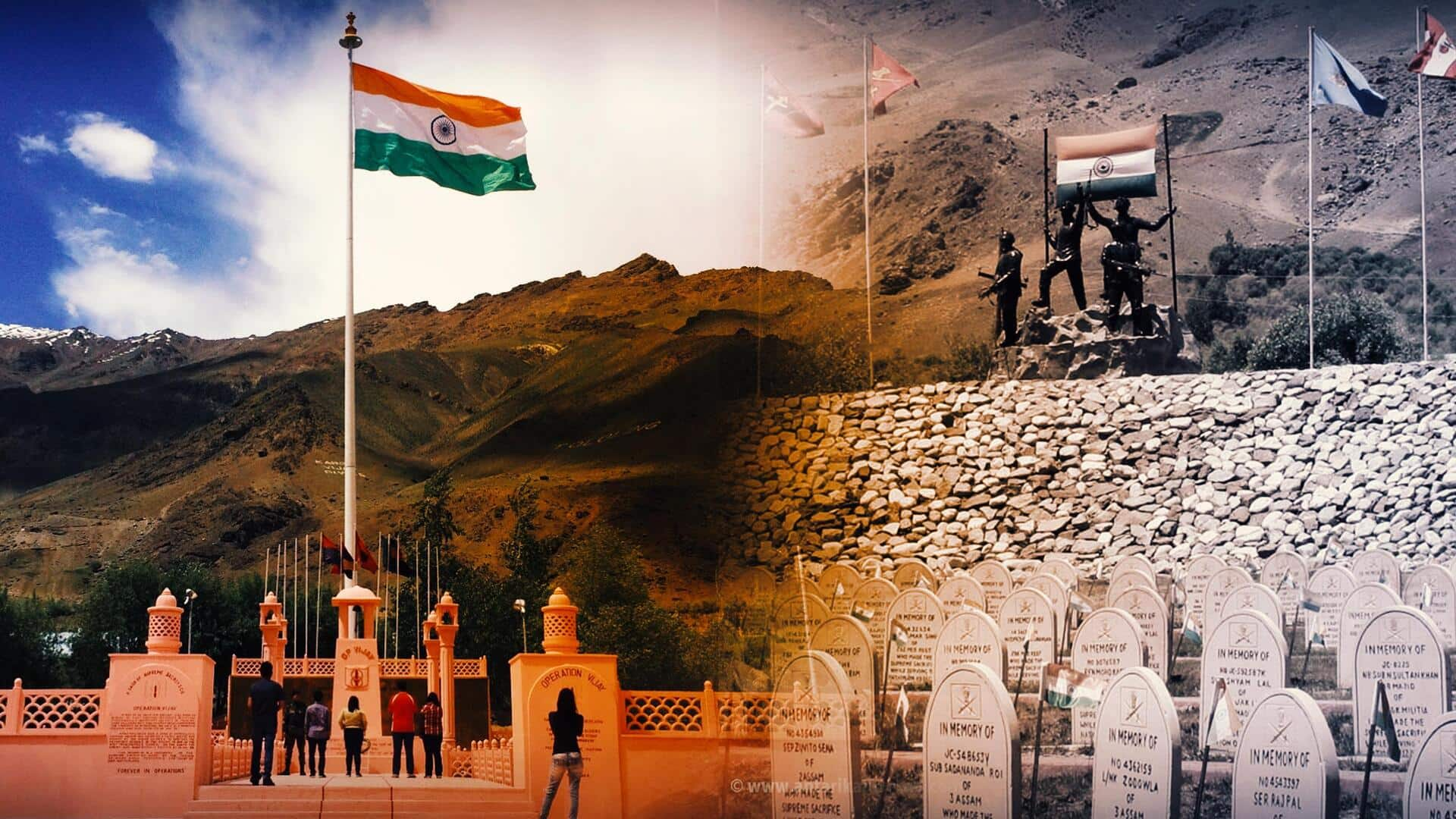
Explained: How India conquered Kargil's harsh conditions in 1999
What's the story
On July 26, 1999, India celebrated victory over Pakistan in the Kargil War. Kargil Vijay Diwas, observed annually on this date, honors India's victory over Pakistan and the soldiers who faced extreme challenges to secure Kargil. The conflict began when Pakistani infiltrators crossed the Line of Control and occupied strategic positions in Ladakh's Kargil district. Initially believed to be jihadis, the scale of the invasion revealed the involvement of the Pakistani state, leading to a full-scale military response from India.
Casualties
Casualties and challenges in Kargil War
The infiltration was first reported to the army in May. By mid-May and July, the Indian forces recaptured critical positions from the Pakistanis while suffering heavy losses. By July 26, all Pakistani regular and irregular troops had withdrawn from Kargil. Official figures reported 527 Indian soldiers dead, 1,363 wounded and one Prisoner of War (PoW), Flight Lieutenant K Nachiketa—whose MiG-27 was shot down during a strike operation.
Environment
Kargil's harsh conditions
The soldiers faced not only well-armed infiltrators but also the harsh conditions of Kargil. As United States Army officer MP Acosta noted in his dissertation High Altitude Warfare: The Kargil Conflict and the Future (2003), "The high altitude environment determined the nature of the conflict and shaped the conduct of the campaign." The extreme heights caused severe physiological effects on soldiers and their equipment, with winter temperatures dropping to -30 degrees Celsius.
Casualties
Many soldiers suffered acute mountain sickness
The early stages of the Kargil War revealed crucial lessons for the Army and Air Force, spotlighting their unpreparedness for large-scale high-altitude combat. Many soldiers suffered from acute mountain sickness, resulting in some casualties, and the lack of cold-weather gear posed significant challenges. Additionally, the harsh terrain and continuous Pakistani shelling of the critical NH 1A created major logistical obstacles. These factors underscored the need for improved readiness and equipment for high-altitude warfare.
Adaptation
Indian Army's response to Kargil's challenges
The Army adapted its strategies to overcome these challenges, implementing acclimatization and training programs for soldiers and procuring better cold-weather gear, although shortages persisted. High-altitude assault techniques were refined, shifting from daytime frontal attacks to small groups scaling near-vertical terrain. With limited air cover due to altitude and terrain, the Army relied heavily on artillery, particularly the controversial Bofors gun, which had an extended range in Kargil's thin air.